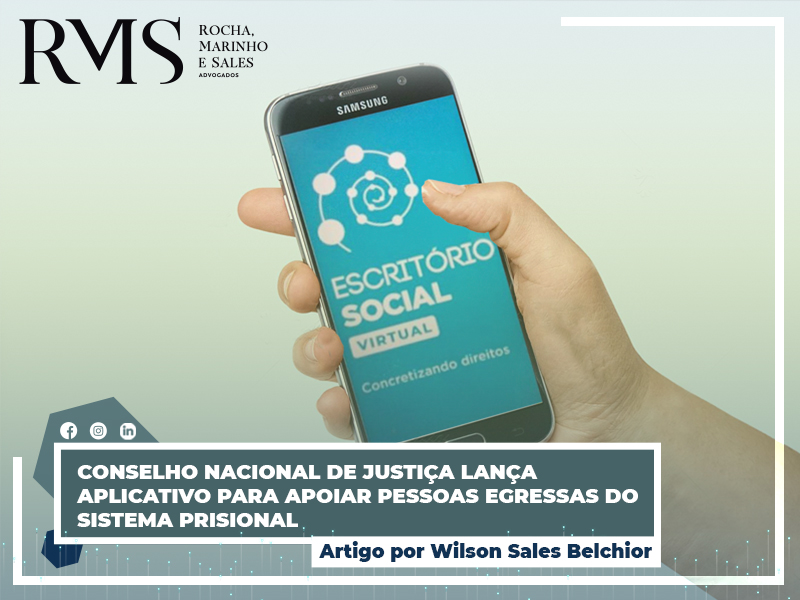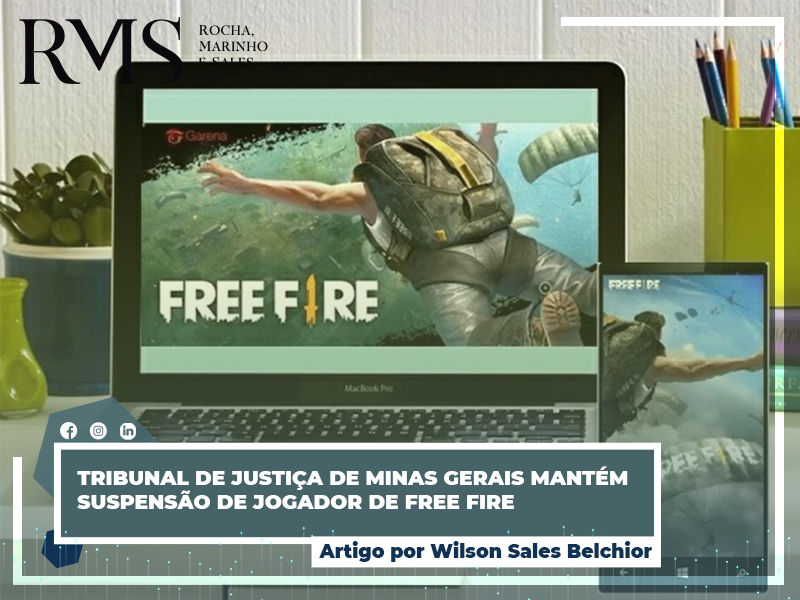Wilson Sales Belchior, partner at Rocha, Marinho E Sales Advogados speaks to the Estadão newspaper about the ethical limits of the use of technology in law
11/02/2021

Moment calls for reasonability and thoughtfulness
Discussing ethical limits involves everything from the basic definition of a categorical imperative to evaluate our actions – according to the possibility of reaching and feeling others – to a definitive value that is inserted in the professional practices and political organization of the State. This with the certainty that its content is perennial and must reach everyone, becoming a compliance guide for the actions of diverse players, in business, politics, professional activities and personal life, as an instrument for institutional improvement and democratic deepening.
Currently, news about new technological solutions that can change legal practice in the Judiciary has become recurrent, improving jurisdictional provision, expanding the speed and management of the procedural stock, with great potential for improving the national justice system. In law firms, there are workflow and project management systems, document automation, juridics, forecasting of results in the compliance area, predictive analysis of the Judiciary’s behavior and legal risk management, among others. This also leads to an adaptation of legal education towards training that will enable future legal professionals with a new look at concrete cases that presuppose analytical reasoning to find different solutions until the deepening of interdisciplinary and converging themes.
Examples of this can be found in the STF, with the “Victor” software – which classifies the processes according to themes of general repercussion to facilitate the admissibility judgment. At TJ-MG, there is the possibility of virtual judgment in less than a second of 280 cases, through a solution capable of identifying and separating resources with similar requests, setting up a voting standard covering a matter already decided. All of this without mentioning the Online Dispute Resolution as a space in which the use of Artificial Intelligence by online platforms is noticed to promote strategic conflict management.
At the intersection between law, technology and ethical limits, the negotiation between TJ-SP and Microsoft brought up the discussion of the use of cloud computing in digital process management. The National Council of Justice suspended the contract, recently maintaining this decision, but revoking the previous position to authorize the study of solutions not related to the PJe, within the scope of the e-process, in view of the potential savings of public resources and the modernization of these electronic systems.
In this case, the ethical aspect of the discussion centered on the complexity of an American provider storing data from Brazilian lawsuits in its overseas data centers, many of which are confidential and strategic. This is in contrast to the mechanisms for the international transfer of data in cases of legal cooperation and guarantee of privacy, provided for in the LGPD and Marco Civil, and the approval, in the United States, of the Cloud Act, allowing government agencies to enter into executive agreements with others. countries, to access electronic information anywhere in the world.
In December 2018, the European Union published the document Draft Ethics guidelines for trustworthy AI. The document brought parameters to guide precisely the discussion of the ethical limits of technological applications, summarizing the demand for respect for fundamental rights, applicable regulation, principles and values, as well as reliability and technical strength. This ethical objective means meeting standards, such as beneficence, non-maleficence, human autonomy, justice and explicability. In addition, any technological application must respect privacy, transparency, security and data governance, non-discrimination, traceability, auditability and accountability, among other aspects.
It is known that the use of technological applications is a trend that is consolidating more and more quickly. It is a reality that cannot be removed by any kind of dogmatic and visceral rejection of technology. Thus, these solutions are consistent with the creation of a space for innovation, institutional improvement and enforcement of rights. In other words, they cannot be seen as threats, but an opportunity to develop new skills and activities.
In view of this, it is expected that these innovations will conform, as the case may be, to the procedural parameters of legal certainty, due to legal process, wide defense, contradictory; ethical-professionals who prevent the commercialization of the legal profession and the undue capture of clientele; and information security, such as satisfactory levels of system encryption, transparency, accountability and legal compliance with Brazilian data protection legislation.
Objectives such as access to justice, procedural speed, reduction of the stock of lawsuits, incentive to the most appropriate means for conflict resolution and the implementation of principles, they must be observed under the prism of ethical limits, procedural, ethical-professional parameters and information security. All of this together with the supremacy of the definitive values registered in the Federal Constitution, always for the benefit of society.
* Wilson Sales Belchior is a lawyer, partner at Rocha, Marinho e Sales Advogados and Federal Advisor at OAB
Source: Jornal Estadão
https://politica.estadao.com.br/blogs/fausto-macedo/os-limites-eticos-do-uso-da-tecnologia-no-direito/?amp




